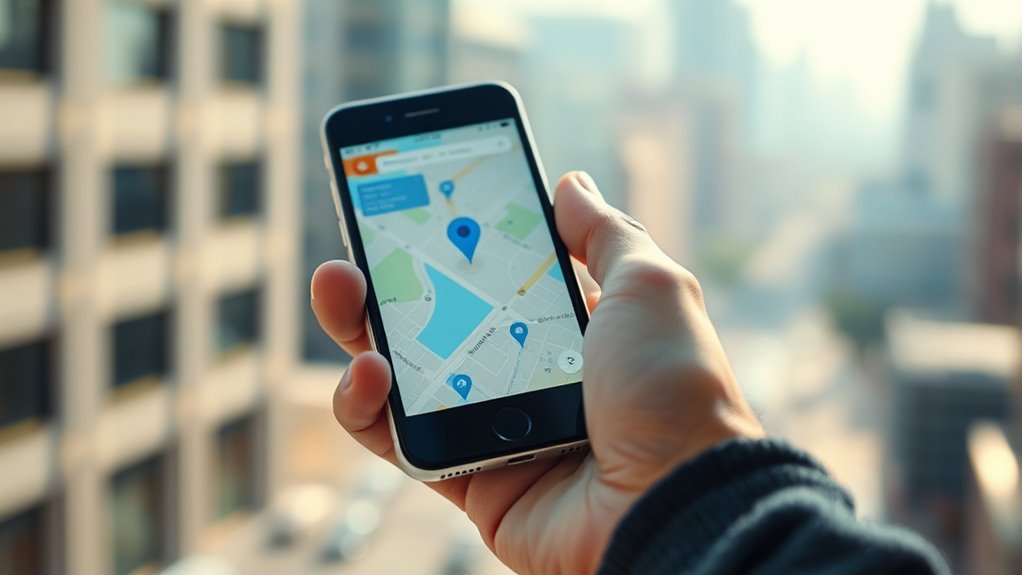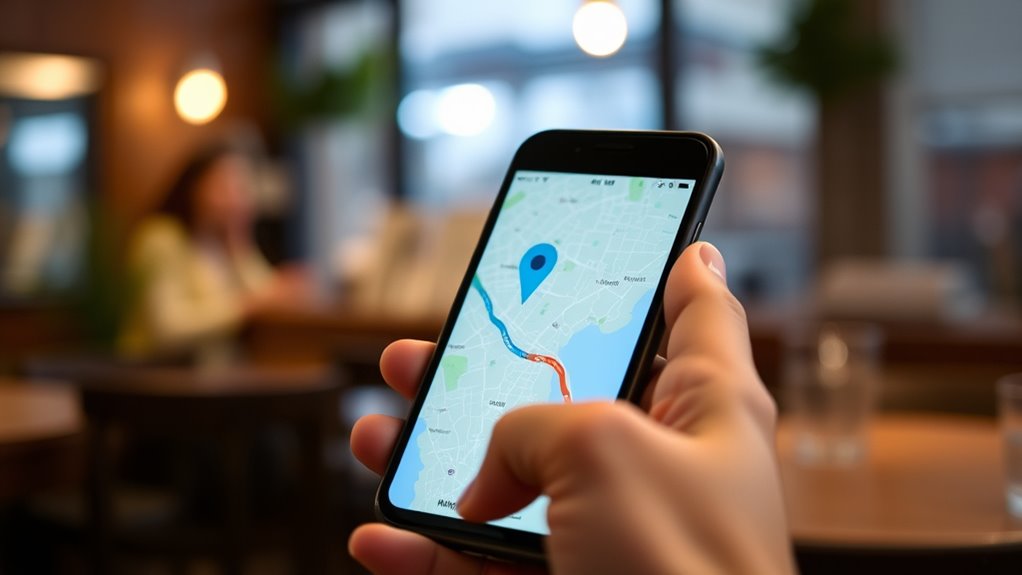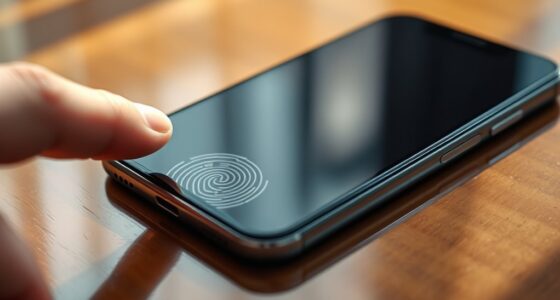Sharing your location can boost safety by providing real-time updates and reassurance, especially during emergencies or unfamiliar places. However, it also risks crossing personal boundaries, leading to overreach, dependency, or feelings of being monitored. While it can build trust, excessive sharing might cause insecurity or jealousy. Finding a balance is key—understanding when and why to share helps maintain healthy boundaries. If you stay curious, you’ll discover ways to navigate this delicate issue thoughtfully.
Key Takeaways
- Sharing location can enhance safety and build trust but may also lead to overreach and loss of privacy if misused.
- Constant real-time updates depend on device performance and network reliability, affecting their effectiveness.
- Over-sharing can foster dependency, jealousy, and insecurity, potentially damaging relationship independence and boundaries.
- Responsible sharing involves clear communication, setting boundaries, and recognizing when to stop to maintain personal autonomy.
- Balancing safety benefits with privacy concerns ensures location sharing supports healthy, transparent relationships without becoming controlling.

Have you ever wondered how sharing your location can keep you connected and safe? It’s a popular feature on smartphones that allows you to let someone else see where you are in real-time. Many people see it as a helpful tool for safety, especially when meeting new people, traveling alone, or steering through unfamiliar places. By sharing your location, you can quickly get help if you’re in trouble or simply reassure loved ones that you arrived safely. It’s an easy way to foster trust and transparency, giving others peace of mind and reducing anxiety about your whereabouts. Additionally, high refresh rates in device screens ensure that your location updates are smooth and real-time, making the feature more reliable. However, it’s not all positive. When you share your location, you’re also giving another person a window into your daily routines, habits, and movements. This level of access can become a double-edged sword. If used responsibly, it’s a safety measure that can prevent danger and foster connection. But if misused, it can lead to issues like overreach, controlling behavior, or even stalking. Some people might feel pressured to constantly share their location to appease their partner or friends, which can erode personal boundaries and independence. Over time, this persistent sharing can make you feel monitored rather than supported, creating a sense of control rather than trust.
In relationships, sharing your location can be a sign of transparency and care. It can help build trust and reduce suspicion, especially during periods of uncertainty or long-distance. But it can also become a slippery slope. When shared excessively, it might lead to dependency, where one partner feels the need to track the other constantly. This can breed insecurity, jealousy, or possessiveness, transforming what was meant to be a safety measure into a source of tension. If you’re not careful, it can diminish your sense of privacy and autonomy, making you feel as if your movements are no longer your own. Recognizing the importance of digital boundaries can help prevent overreach and maintain healthy relationships while using location sharing features. Moreover, understanding the privacy implications of location sharing can help you make informed decisions about when and how to use this technology responsibly. Additionally, being aware of how environmental factors, such as network reliability, can impact the accuracy of your location data, is crucial for ensuring safety and trust.
Ultimately, sharing your location should be a choice made with mutual understanding and boundaries in mind. It’s essential to communicate openly about why you’re sharing and how it’s helping or affecting your relationship. If it starts to feel uncomfortable or invasive, it’s okay to set limits or stop altogether. Remember, technology can be a great tool for safety and connection, but it shouldn’t replace trust, respect, and personal boundaries. It’s about finding a balance that keeps you feeling secure without sacrificing your independence or privacy.
Frequently Asked Questions
How Can I Disable Location Sharing Temporarily?
If you want to disable location sharing temporarily, start by opening the app or settings where you share your location. Look for the location sharing feature or permissions. Turn it off or toggle the switch to disable sharing. You can often choose specific contacts or groups to stop sharing with temporarily. Remember to turn it back on when you want to resume sharing to stay connected and safe.
What Are the Legal Implications of Sharing My Location?
When you share your location, you’re giving others access to your whereabouts, which can have legal implications if misused. For instance, if someone shares your location without your consent or uses it for harassment, you might have grounds for legal action. Always understand the privacy policies and laws in your area, and consider who you’re sharing with to protect yourself from potential legal issues.
How Does Location Sharing Affect My Privacy Rights?
Think of your privacy rights as a delicate garden fence; sharing your location is like opening the gate. It can protect you if you’re cautious, but it also invites strangers in. When you share your location, you open a door to potential privacy breaches, making your personal space vulnerable. You control the key—be mindful of who you share with, and always weigh the risks against the safety benefits.
Can Location Sharing Be Hacked or Misused?
You might wonder if sharing your location could be hacked or misused. Unfortunately, yes, it’s possible if security isn’t strong. Hackers can target apps or devices to access your data, and misuse can happen if someone with malicious intent gets ahold of your location info. To stay safe, use strong passwords, enable two-factor authentication, and only share your location with trusted people. Always stay aware of app permissions and privacy settings.
What Are Signs of Unhealthy Dependency on Location Sharing?
You might notice signs of unhealthy dependency on location sharing if you constantly feel anxious without updates or find yourself checking your partner’s location excessively. If sharing becomes a source of control, rather than trust, or if it leads to arguments over privacy, it’s a red flag. Recognizing these behaviors helps you set healthier boundaries and regain independence, ensuring that location sharing remains a tool for safety, not manipulation.
Conclusion
Sharing your location is like walking a tightrope—you’ll feel empowered, but one misstep could lead to chaos. While it can be a safety net, offering reassurance and trust, it also risks turning your relationship into a delicate web of suspicion. Think carefully before you share; it’s your choice to balance safety and privacy. Ultimately, it’s about finding that sweet spot where trust blossoms without feeling like you’re walking on eggshells.









